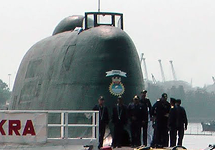
Incidents Involving Sub-National Actors and Chemical, Biological, Radiological, and Nuclear Materials
A myriad of armed tribal and Islamist militias in the north of Iraq could pose a threat to US forces stationed in the area.

Occasional Paper #10: Identifying areas of common ground in the field of future space activity. A collaboration between the Center for Nonproliferation Studies and the Mountbatten Centre for International Studies at the University of Southampton.
The United States and Russia have to adjust old patterns of thinking to new political realities in order to further cooperation on nuclear terrorism and weapons proliferation.
List of significant conventional terrorist incidents from 1980-2000 seeks to provide context for the terrorist attacks conducted on September 11, 2001.

A rejection of Bulgaria’s bid to join NATO might create anti-Western sentiments.

The leased submarines are expected to be armed with Club-S missiles.
China has made gradual progress in its nonproliferation policy over the last decade.

Occasional Paper #7: This series of papers on missile proliferation and possible responses focuses on international and unilateral control mechanisms, regional perspectives, and implications for space.

Occasional Paper #5: The focus of this series reflects the concern of both centers that the spread of ballistic missiles constitutes one of the most serious and complex nonproliferation challenges today.